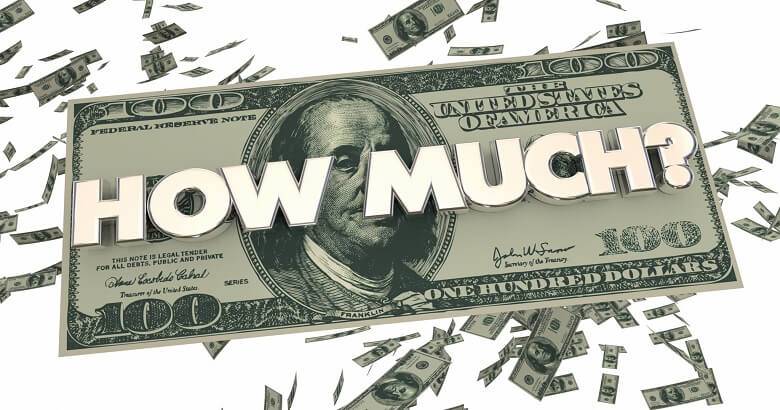Within the expansive and intricate sphere of publishing, many elements influence the degree of achievement attained by the book. Marketing is an extremely vital component. Literary professionals are frequently perplexed about how much publishers invest in promoting their works. Gaining this comprehension can illuminate the intricacies of the writing profession and assist aspiring writers in establishing pragmatic goals. As we explore the complexities of expenditures of book promoters and marketers on book marketing.
The Marketing Environment
Marketing within the publishing industry is an intricate undertaking incorporating a wide range of tactics to engage prospective consumers. To effectively promote books, publishers utilize a wide array of strategies, including digital platforms like social media and email campaigns and conventional methods like print advertising.
-
Channels of Traditional Marketing
In the past, publishers predominantly utilized conventional marketing channels, such as book promoters and marketers, and print advertisements featured in literary journals, newspapers, and periodicals. While these channels provide extensive reach, they might not consistently produce the intended outcomes in the digital era.
-
Electronic Marketing Approaches
As social media and the internet have increased, publishers have increasingly adopted digital marketing strategies. These strategies encompass a range of digital marketing channels, such as author blogs, email newsletters, social media advertisements, and promotions on platforms like Facebook, Twitter, Instagram, and Goodreads.
Factors Influencing Marketing Budgets

The marketing budget publishers allocate for a book can substantially vary and is contingent upon many factors. These factors are significant in ascertaining the comprehensive budget and the tactics implemented to efficiently promote a title.
-
Reputation and Track Record of the Author
Authors who have achieved recognition and sustained success frequently obtain larger marketing budgets from their publishing houses. The potential for increased sales resulting from their established fan base and reputation renders this endeavor a valuable investment for publishers.
-
Market and Genre Trends
The book’s genre and current market trends may also impact marketing budgets. Substantial allocations may be given to popular genres, such as mystery, romance, and intrigue, in contrast to niche or experimental genres.
Publishing House Scale
Marketing expenditures are influenced by the publishing house’s magnitude and assets. Compared to smaller independent publishers, large publishing conglomerates with expansive distribution networks and marketing divisions may operate with more substantial budgets.
-
Independent Publishers
Independent publishers, despite having fewer resources, frequently concentrate on niche-specific marketing initiatives. Their top priorities could be establishing connections with book bloggers, coordinating author events, and utilizing grassroots marketing strategies.
Pre-Publication Marketing
Marketing endeavors frequently commence well before a book’s release date, as publishers allocate resources towards a variety of pre-publication activities to cultivate interest and eagerness among readers.
-
ARCs Advance Reader Copies
Advance reader copies (ARCs) are commonly furnished by publishers to influencers, reviewers, and bloggers to generate preliminary interest and secure endorsements for the book.
-
Author Events and Tours
Authors can undertake promotional excursions to engage in speaking engagements, book signings, and literary festivals to connect with readers and promote their forthcoming publications.
Post-Publication Marketing

After publishing a book, publishers maintain their investment in marketing endeavors to ensure sustained momentum and long-term sales growth.
-
Public Relations Efforts
Publicity initiatives like feature articles, media interviews, and book reviews are designed to maintain the book’s prominence and expand its readership.
-
Promotions at Bookstores
To increase sales and visibility, publishers collaborate with bookstores to secure prominent placement and promotional opportunities, including featured tables, window displays, and author signings.
Return on investment
Publishers must calculate the return on investment (ROI) and measure the efficacy of marketing campaigns to evaluate their endeavors’ success and develop future strategies.
-
Metrics for Sales
Sales metrics, such as units sold, revenue generated, and book sales, are monitored by publishers to assess the effectiveness of marketing campaigns on the book’s market performance.
-
Engagement of Readers
In addition to examining sales data, publishers assess reader response and reception of a book by analyzing reader engagement metrics, including website traffic, social media interactions, and online reviews.
Adaptation to Digital Platforms
The digital revolution has significantly altered the book marketing industry, compelling publishers to modify their approaches to engage with readers in the digital domain efficiently.
-
Social media marketing
Using social media platforms, publishers foster communities around authors and books, engage with readers, and generate opportunities to promote word-of-mouth and organic discovery.
-
Analytics of Data
By providing publishers with insights into reader preferences, trends, and behavior, data analytics tools empower them to tailor marketing strategies and target audiences more precisely.
Budget Allocation and Prioritization
Given their constrained resources, publishers must prioritize book promoters’ and marketers’ endeavors and allocate budgets strategically to optimize impact and effectively target specific audiences.
-
Cost-Effective Strategies
Publishers frequently pursue budget-friendly marketing approaches that provide substantial visibility and interaction while remaining within acceptable limits. Examples of such approaches include influencer partnerships and targeted online advertising.
-
Long-Term Capital Investing
While certain marketing strategies produce immediate outcomes, others require sustained investment and attention, such as developing author platforms, nurturing reader communities, and investing in brand recognition.
Partnership with Authors

Succeeding in book marketing requires productive collaboration between book promoters and marketers, and authors. Authors fulfill an essential function by engaging with readers and publicizing their books, thereby supplementing the publisher’s endeavors.
-
Author Participation
Authors progressively engage in marketing endeavors, capitalizing on their personal brands, social media profiles, and networks to enhance the book’s visibility and establish direct connections with readers.
-
Merged Marketing Initiatives
Publishing houses and authors engage in collaborative marketing endeavors, such as social media campaigns, cross-promotional activities, and virtual book tours, to maximize exposure and capitalize on their combined networks.
Sums Up
Marketing efforts within the dynamic and competitive book publishing industry significantly influence a book’s success level. Strategic and targeted marketing efforts of book promoters and marketers are critical for generating sales and connecting books with readers, even though the precise quantity publishers invest in marketing varies considerably based on author reputation, genre, and publisher size. Authors can optimize the visibility and influence of their work and enable productive collaborations with publishing partners by comprehensively comprehending the complexities surrounding publisher marketing expenditures.
Frequently Asked Questions – FAQs
-
How much do publishers typically allocate for marketing a book?
Publishers usually allocate around 10% to 20% of the book’s production cost for marketing purposes. This figure can vary depending on factors like the author’s reputation, the genre of the book, and the potential market demand.
-
What marketing expenses are included in a publisher’s budget for a book?
Marketing expenses typically include promotional materials such as bookmarks, posters, and book trailers, as well as advertising costs for online and print media. Additionally, expenses may cover author tours, book launch events, and public relations efforts.
-
Do publishers spend more on marketing for certain genres or types of books?
Yes, publishers may allocate more resources for genres or books with a larger target audience or higher profit potential. Genres like mystery, thriller, and romance often receive more marketing investment due to their popularity and market demand.
-
How do publishers decide on their marketing budget for a book?
Publishers base their marketing budgets on various factors, including the author’s platform and previous book sales, the potential market size and demand for the book, the publishing company’s overall marketing strategy, and budget constraints.
-
Do authors have any input or control over how much is spent on marketing their book?
Authors may have some input or influence on the marketing budget for their book, especially if they have a strong platform or a track record of successful sales. However, the final decision ultimately rests with the publisher, who considers various factors to determine the appropriate marketing investment for each title.



